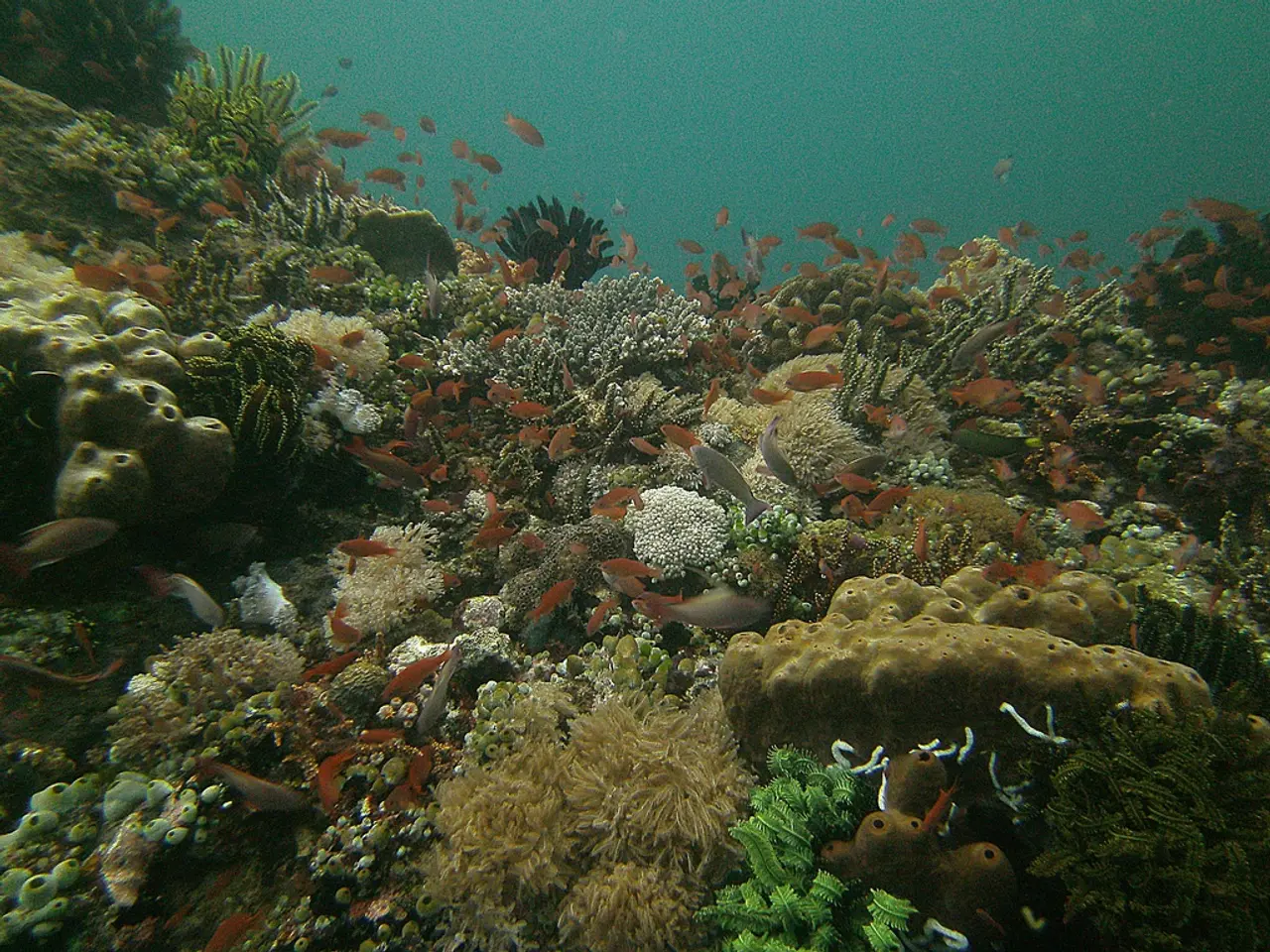Oceanic Catastrophe: The Destructive Impact of Heatwaves on Coral Reef Foundations
In a groundbreaking paper published in Nature Climate Change, researchers have highlighted the immediate and dramatic consequences of marine heatwaves on our oceans, underscoring the need for urgent action to address this pressing issue.
Led by Dan Smale from the University of Western Australia, the team conducted a comprehensive meta-analysis on the ecological impacts of eight prominent marine heatwave events. They reviewed over 100 scientific research papers to reach their conclusions.
The study reveals a strong link between the intensification of marine heatwaves and human-induced climate change. It's a worrying finding, as marine heatwaves, characterized by an ocean's surface temperature being significantly warmer than normal, have intensified worldwide.
Three foundational taxa - corals, seagrasses, and kelp - play a crucial role in supporting underwater ecosystems and provide important ecological services like carbon sequestration and nutrient cycling. However, this research shows that these organisms are particularly vulnerable to marine heatwaves, with coral bleaching, moribund seagrass, and decreased kelp biomass all being linked to temporary highs in water temperature.
Researchers looked for areas where marine heatwave intensification overlapped with high biodiversity, temperature-sensitive populations, and non-climatic human stressors such as overfishing and pollution. They identified several vulnerable regions, including Australia, the Caribbean Sea, the mid-Eastern Pacific coastline, the South-West Pacific, and the mid-West Atlantic.
Extreme warming events can occur naturally, but growing evidence suggests that the intensification of heatwaves in recent years is attributable to human activities. The main causes of ocean warming in recent years are the increased absorption of anthropogenic CO2 emissions leading to global climate change and the resulting rise in ocean temperatures, alongside pollution from various human activities such as industry, agriculture, tourism, fisheries, and shipping, which stress marine ecosystems and contribute to warming.
Marine heatwaves can cause rapid and profound ecological changes, leading to loss of habitat, local extinctions, reduced fisheries catches, and altered food webs. All marine taxonomic groups, with the exception of fish and mobile invertebrates, responded negatively to marine heatwaves. Birds and corals were the most adversely affected.
As marine heatwaves continue to intensify, it's clear that our ocean ecosystems face a number of threats, including periods of extreme temperatures, overfishing, acidification, and plastic pollution. It's essential that we take immediate action to mitigate these risks and protect our oceans for future generations.
Read also:
- Peptide YY (PYY): Exploring its Role in Appetite Suppression, Intestinal Health, and Cognitive Links
- Toddler Health: Rotavirus Signs, Origins, and Potential Complications
- Digestive issues and heart discomfort: Root causes and associated health conditions
- House Infernos: Deadly Hazards Surpassing the Flames








